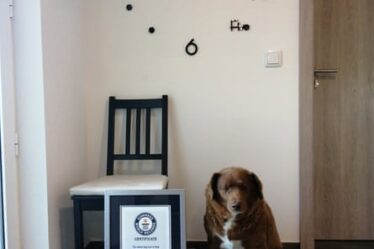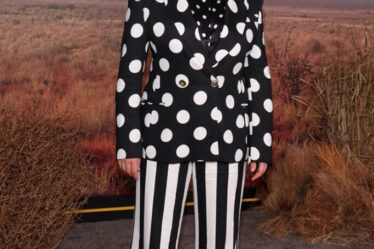Mercury/13 believes it has a winning strategy for women’s football teams: branding them as if they were luxury labels.
Formed last year, Mercury/13 is an ownership group that has pledged $100 million to acquire women’s football teams worldwide and transform their commercial value. Today it unveiled a new visual identity for its first portfolio club, FC Como Women, a team competing in the Serie A Femminile — the top division of Italian football — that it acquired in March.
The rebranding includes a sleek new logo referencing the famous lake and textile industry Como is known for that was inspired by the simplicity of luxury brand monograms, according to Andy Harvey, a former Burberry strategist and founder of London-based creative studio Communion, which worked with Mercury/13 to develop the team’s new identity. It also includes fresh brand messaging, such as a new set of team values, and a campaign to announce the team’s new era, as well as a newly designed website and social media accounts.
Victoire Cogevina Reynal, co-CEO in charge of commercial operations for Mercury/13, said the ambition is to build the group into “the LVMH of women’s sport,” she told BoF. “We are in the process of building a portfolio that speaks to female football audiences that previously haven’t felt represented by the sport or how it looks.”
Cogevina Reynal has direct experience in the fashion industry herself, having worked at Swarovski, Net-a-Porter and Condé Nast early in her career. She credits this experience for the unconventional approach she is taking with FC Como Women.

Mercury/13 has also hired Ines Rovira, an experienced luxury creative strategist, as the full-time creative director of FC Como Women. Rovira’s role in and of itself is groundbreaking: She will be the first person ever to hold this role at a professional women’s football club (the creative director job in football more generally is still extremely new).
There is certainly precedent for scaling a women’s sports entity along these lines. Angel City FC, a women’s football team founded in 2020 and competing in the US National Women’s Soccer League, is a prime example of how much value can be realised from creating a cultural entity out of a sports franchise. It released collaborations with various fashion and retail businesses, launched cultural partnerships with local organisations and became a globally followed brand in its own right as its players and high-profile board members became outspoken advocates on topics like advancing women’s rights in sports. The team’s commercial value soared — even though it never reached the heights expected of it on the field.
Now, its star studded cast of shareholders — including Alexis Ohanian, Natalie Portman, Billie Jean King and several legends of US Women’s Soccer — look set for a bumper exit just four years after founding the franchise. On Wednesday, Disney chief executive Bob Iger and his wife Willow Bay agreed to buy a controlling stake in the club at a valuation of $250 million, in a record deal that makes it the most valuable women’s sports team in the world, per The Financial Times. It’s not a bad return for a team sitting 11th out of 14 teams in the NWSL this season, with a win rate of just 25 percent.
The FC Como Women project also serves as an example of the ways women’s teams are charting their own paths separate from men’s. Particularly in Europe and Latin America, they are often regarded as add-ons to their more established male counterpart teams (think Manchester United Women, only an established professional team since 2018, to Manchester United FC, which has been around since the late 1800s).
“We realised there’s a whole bunch of traditional sports codes that we don’t have to play with,” said Harvey, who through Communion has designed campaigns for brands like Zegna. “Meanwhile, there was a whole bunch of fashion and luxury-style codes that we thought could be an interesting way to reset the visual narrative of what a football club looks like.”

They applied the same logic to the design of the kits for the upcoming season — a plain white jersey, shorts and socks for the home kit, and plain black for the away strip.
The freedom of operating a standalone women’s team means that commercial partnerships can be tailored to match the needs of female athletes. Como Women is set to announce deals with female-founded beauty and apparel brands whose products address key concerns shared by women’s footballers, such as the much-debated issue of playing during their periods.
Meanwhile, a major sportswear company is set to step in as the team’s long-term kit manufacturer and will also provide boots and other equipment for players who aren’t currently signed to deals with other brands. It’s a stark contrast with life before the Mercury/13 acquisition, when players would sometimes have to wash their own kit and the majority would buy their own footwear as they didn’t have deals lined up with sportswear brands. The raft of incoming commercial sponsors will be announced when deals are finalised later this summer, the company said.
It’s not lost on Cogevina Reynal that the team’s early brand partners are taking a bet by teaming with a little-known, five-year-old Italian club that finished seventh among 10 teams in the most recent regular season.
“I can’t tell prospective sponsors that we have millions of viewers each week, or hundreds of thousands of social media followers they can market to — none of those things are true yet,” she said. “It’s not your typical sponsorship where you give us money in exchange for exposure. You have to add value to what we are building.”



